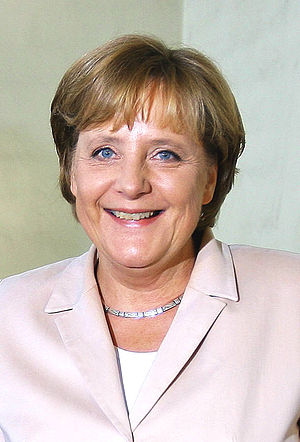
Image via Wikipedia
The accord was vague on figures and aid can be invoked only as a "last resort" if Greece is shut out of the capital markets. Since Greece is already paying an untenable debt premium, the wording once again leaves it unclear what exactly has been settled.
Angela Merkel, the German Chancellor, and Jan Peter Balkenende, the Dutch premier, leaders of the two key creditor states, imposed their demand that the IMF must be central to any rescue.
While the Eurogroup is to play a "co-ordinating" role, Germany and Holland will retain a veto over use of the facility. Greece said it was "satisfied" by the terms.
The accord masks a bitter struggle between Germany and a French-led bloc over the future shape of Europe. For all the rhetoric, Berlin has refused to cross the Rubicon towards an EU fiscal union, shattering long-held assumptions about the inevitable march of the EU project. By bringing in the IMF, it ensures that each sovereign state remains responsible for its own debts.
A host of questions remain unanswered, not least whether the IMF's board will disburse funds without retaining control over austerity plans, or whether it will accept EU conditions at all. The IMF usually imposes devaluations and steers monetary policy. When public debt is already too high – as it may be in Greece at 125pc of GDP this year – the Fund can engineer a controlled default.
![Reblog this post [with Zemanta]](http://img.zemanta.com/reblog_a.png?x-id=980de94e-beca-4b06-bc8c-264a11cb89d6)